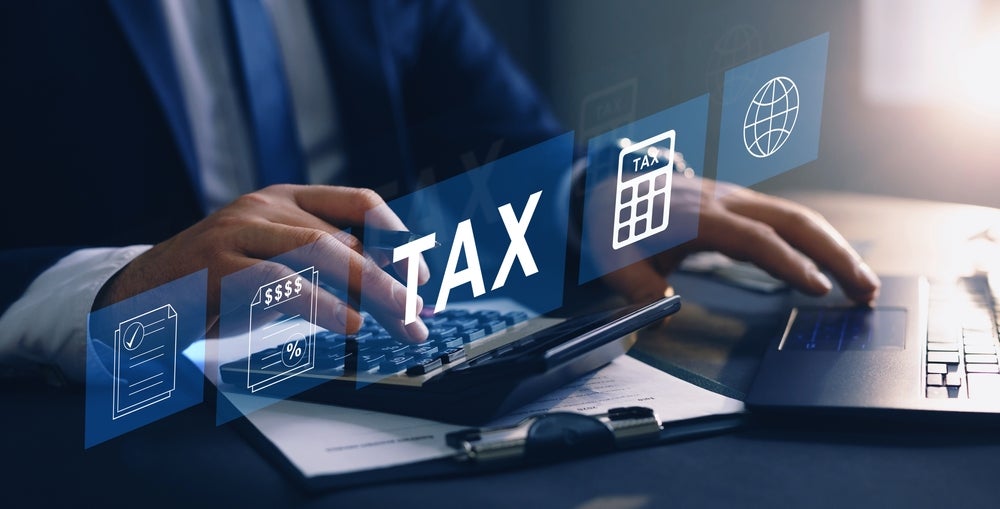By Chris Conway*
The Panama papers leak has put the issue of tax avoidance very much in the public spotlight.
Revelations from the leaked Mossack Fonseca legal documents that individuals such as Prime Minister David Cameron had money sheltered offshore has led many to call for tough action on tax avoidance.
Avoidance or evasion?
The issue has blurred the lines between tax avoidance, which is legal, and tax evasion, which is illegal.
It has created a middle ground where any actions seen as aggressive tax avoidance are likely to be scrutinised by HMRC.
UK politicians have responded by publishing their own tax returns, with Opposition Leader Jeremy Corbyn revealed to have been fined £100 for submitting his a day late.
How well do you really know your competitors?
Access the most comprehensive Company Profiles on the market, powered by GlobalData. Save hours of research. Gain competitive edge.

Thank you!
Your download email will arrive shortly
Not ready to buy yet? Download a free sample
We are confident about the unique quality of our Company Profiles. However, we want you to make the most beneficial decision for your business, so we offer a free sample that you can download by submitting the below form
By GlobalDataMr Cameron’s return drew criticism after his mother gifted him £200,000, despite being a form of legitimate inheritance tax planning.
The government has now said it is planning on introducing rules that would hold companies criminally responsible if their staff facilitate tax evasion.
This could put accountants in particular at risk and throw the spotlight on the way they structure their client’s tax affairs.
Accountants are already responsible under money laundering regulations to ensure individual and company funds are obtained legally.
But it is also important to remember there are perfectly legal ways an accountant can help keep tax bills down without the threat of breaking the law. This is known as tax planning and we reveal six legal ways to keep money away from the taxman below.
Sole trader vs incorporation
The way a business is structured has important tax implications.
Acting as a sole trader means an individual has to pay income tax while a company structure would be liable for corporation tax.
Corporation tax is currently 20 per cent and dropping to 17 per cent by 2020, while income tax is set at 20 per cent for the basic rate and 40 per cent for higher rate taxpayers.
Therefore, if someone is on the higher rate tax band it is perfectly legal to consider setting up a company so they would pay a lower tax rate.
Income tax and dividends
Business owners want to maximise profits and reduce their tax bill as much as possible.
Having a wife or husband as a shareholder or director can help with tax planning as they can distribute the income depending on personal allowances.
The introduction of the new £5,000 dividend allowance in this tax year also makes it worth having a spouse on the books.
Everyone now has a £5,000 dividend allowance before tax starting at 7.5 per cent.
A business owner could reduce their own income tax liability by using both theirs and a spouse’s dividend allowances each year to spread their income.
Capital gains tax
Keeping it in the family can also have a capital gains benefit.
You can currently earn £11,100 from assets before having to pay capital gains tax.
Anything above that will be charged at 10 or 20 per cent depending on whether you are a basic or higher rate taxpayer.
However, with some careful tax planning you could reduce or even legally avoid a CGT bill by transferring assets to your partner.
Technically if you are married you could have a combined CGT allowance of £22,200 before needing to pay anything.
Transferring or gifting assets between a husband and wife is tax-free. So you could make use of whoever has the lowest tax rate or if one of the partner’s is yet to use their full allowance.
Entrepreneurs’ relief
Business owners can get a reduced capital gains tax rate of 10 per cent when selling all or part of a company if they own more than 5 per cent.
It is available for up to £10million in lifetime gains.
The relief has also now been extended where disposals are made to family members.
Pensions
If company directors find they are using up their personal and dividend allowance, one handy way of reducing their tax bill is by making pension contributions.
They can use retained profits in a company and contribute directly into a pension, which reduces their corporation tax charge as there is less money left in the business.
The director wouldn’t be able to access the pension funds until age-55 but they will get tax relief meaning you effectively make contributions from pre-tax income.
So if a basic-rate taxpayer pays in £80, the government will top-up that contribution to £100 due to the 20 per cent relief while the higher rate taxpayer would only need to contribute £60 to get to £100.
There are limits on how much can be put into a pension each year. The current annual allowance is £40,000 a year and there is a lifetime allowance of £1million
Expenses
From coffee meetings to business travel, there are several items of company expenditure you can claim for that will reduce your tax bill.
Business owners also have an annual investment allowance of £200,000 for items such as computers and printers.
You can offset any of this spending against your tax bill. So if your profits were £100,000 one year but you spent £20,000 on equipment, you would only pay tax on £80,000.
You have to be careful what you claim for. For example, a driver claiming for mileage is a legitimate expense but if you chose to buy a car through the company and it was also used personally then it would become a taxable benefit.
If you do still chose to have a company car for personal use then the tax you owe will be based on the car’s value and its CO2 emissions. This makes it worth considering low emission vehicles or electric cars as they will have the lowest charge at 7 per cent for petrol and 10 per cent for diesel. The higher-polluting cars have charges of 37 per cent.
*Chris Conway is managing director of Accounts and Legal





